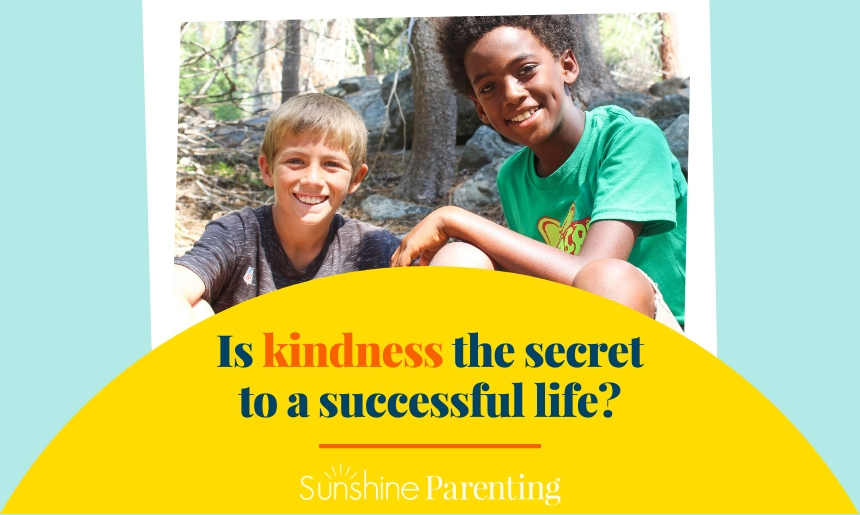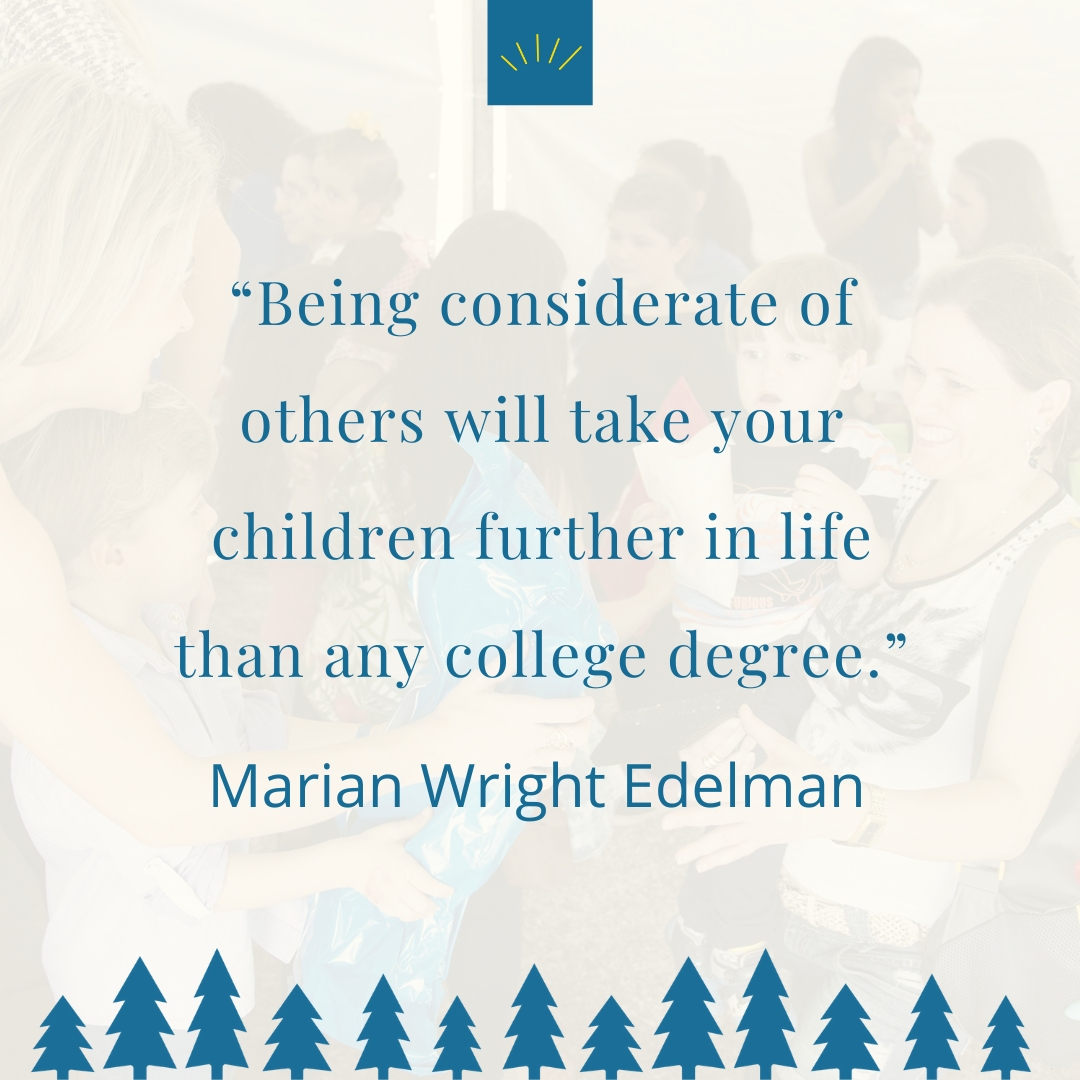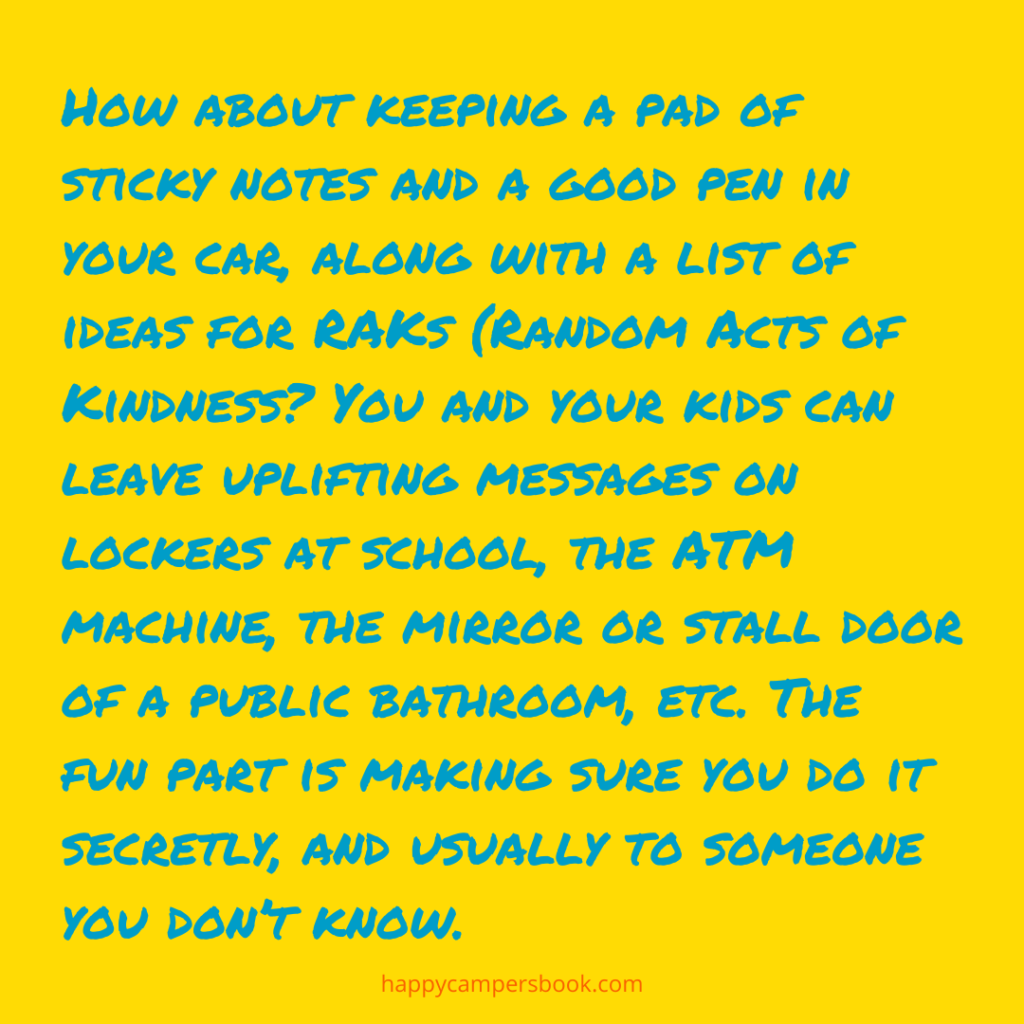

Being a considerate, kind person who thinks about others is a character trait that helps children form good relationships and leads to a happier life as an adult.
What does this mean for super competitive parents who want their children to succeed at all costs, even if it means cheating and being mean to others? It could be helpful for parents to know that research has clearly shown that kind people are happier people, and happier people, in turn, are more successful in life. In jobs and in future relationships, kindness will take our children “further in life than any college degree.”
Focusing on kindness needs to be a higher priority for everyone who cares about children.
In our cut-throat, competitive culture, where assertiveness and achievement are glorified and valued, focusing on developing kindness is often overlooked.
There are anti-bullying posters and speakers at most schools, but where is the message about the powerfully positive impact of kindness?
Parents and youth development professionals, including teachers, coaches, and camp staff, know that wording things positively and telling kids what we DO want them to do is far more effective than a list of “don’ts” and “nos.” So, why hasn’t this message translated into how we teach children to treat one another?
We’re talking with children a lot about not bullying each other, but we’re not talking with them enough about what we want them to be doing instead — which is, of course, to treat each other with respect and kindness. I propose that as parents and youth development professionals we flip the “anti-bullying” message into a “pro-kindness” one.
Ways to model and practice kindness
Get kids to focus on kindnesses that they have seen by asking them to point out kind acts they have witnessed or done.
Brainstorm with kids kind things they can do for others and help them follow through. Focus on small, easy kindnesses rather than huge things.
Talk with kids about how they feel after someone has done something kind for them or after they’ve done something kind for another person.
Questions to Ask Kids to Spur Conversations about Kindness
• Share something kind they’ve seen someone else do this past week.
• What’s the kindest thing someone has ever done for you?
• What are kind things we can do for our friends? Siblings? Parents? People we don’t know?
• How do you want to be remembered by your classmates and friends?
“You can’t live a perfect day without doing something for someone who will never be able to repay you.”
— John Wooden
This topic is so important to me that I dedicated an entire chapter of my book, Happy Campers, to it: Camp Secret #8: Make it Cool to be Kind. Each chapter of Happy Campers ends with five different “Bringing Camp Home” activities to consider trying in your family. Here’s something you can try!

Kindness Inspiration & Resources
Five Ways to Raise Kind Children, Greater Good Science Center
Being Kind Makes Kids Happy, Greater Good Science Center
Ep. 46: CampKindnessDay with Tom Rosenberg
Ep. 108: Simple Acts of Giving Back with Natalie Silverstein
The Power of Kindness, American Camp Association
The Random Acts of Kindness Foundation
World Kindness Day
Happiness Tip: Commit to Kindness (Christine Carter, Raising Happiness)
Friday Inspiration: 22 Acts of Kindness (Christine Carter): Such a great birthday idea!

